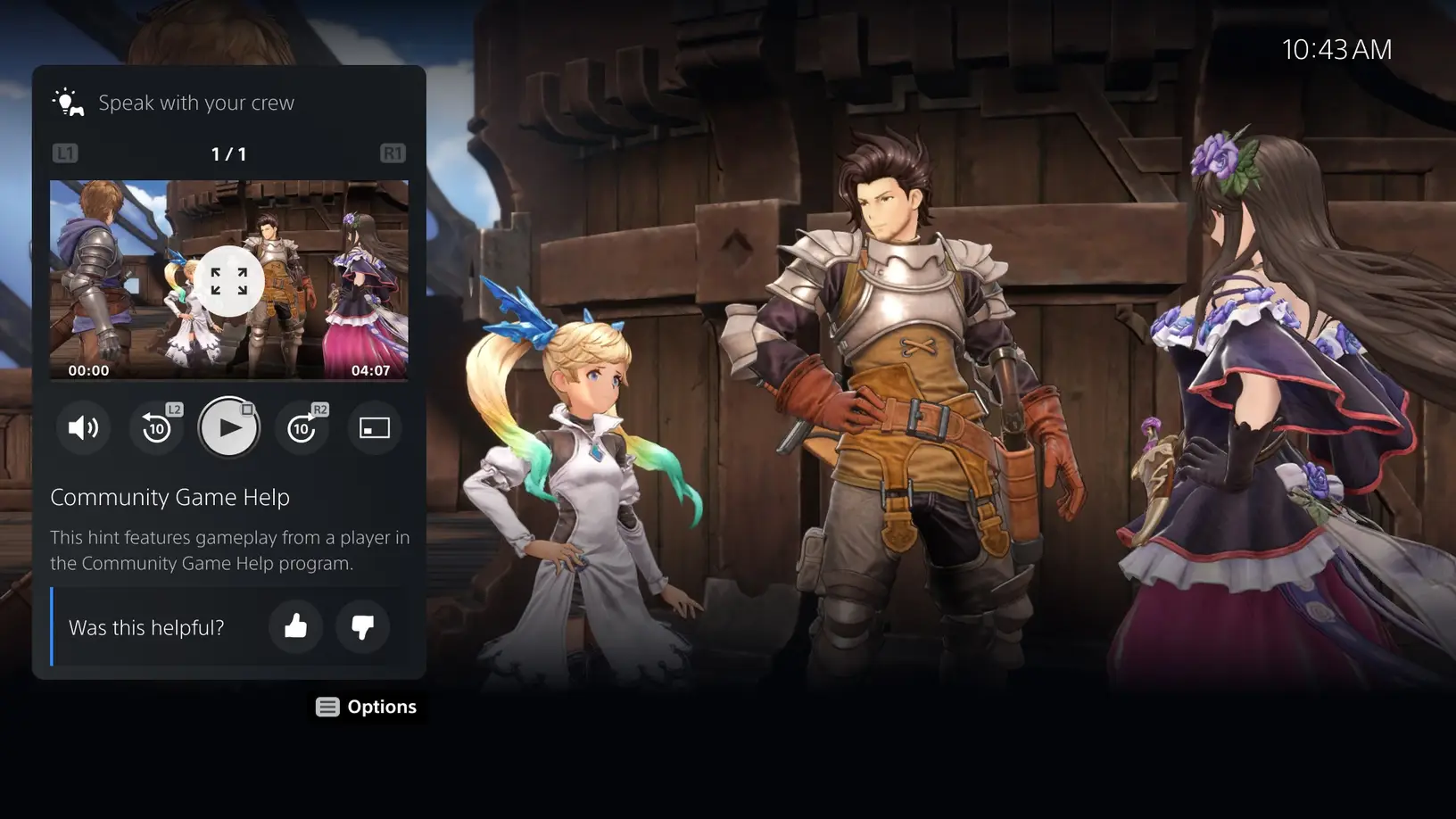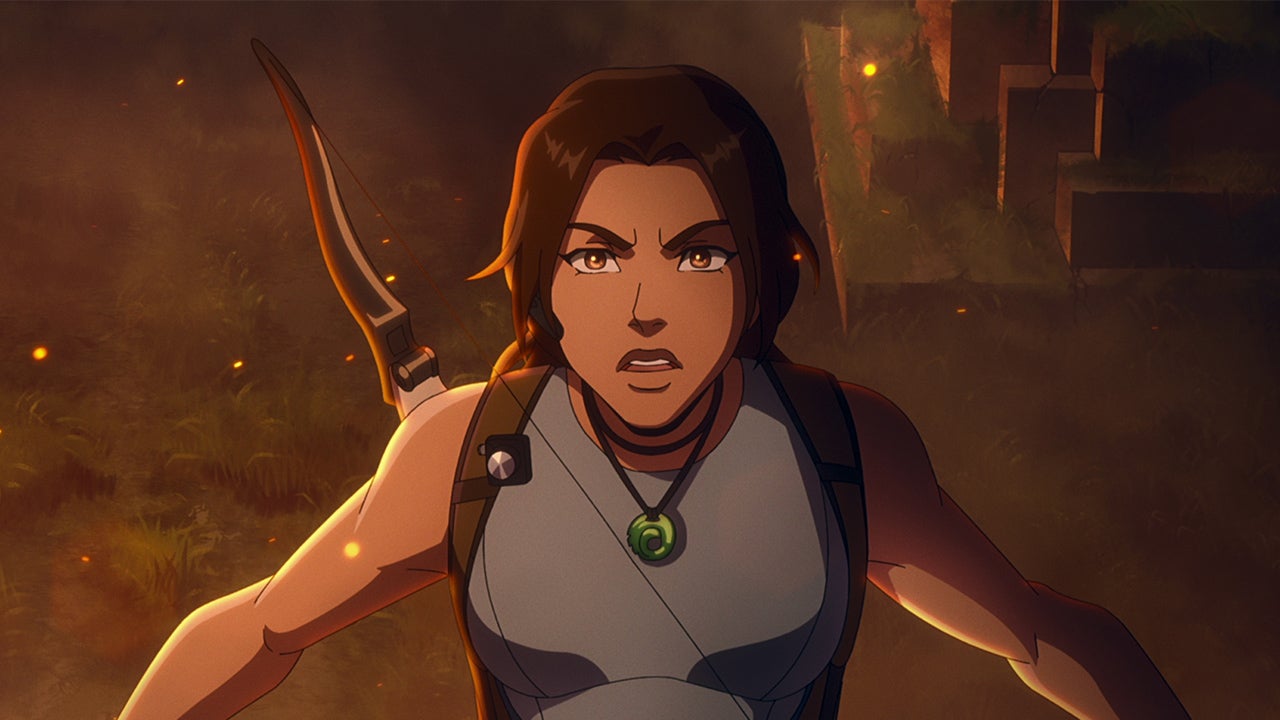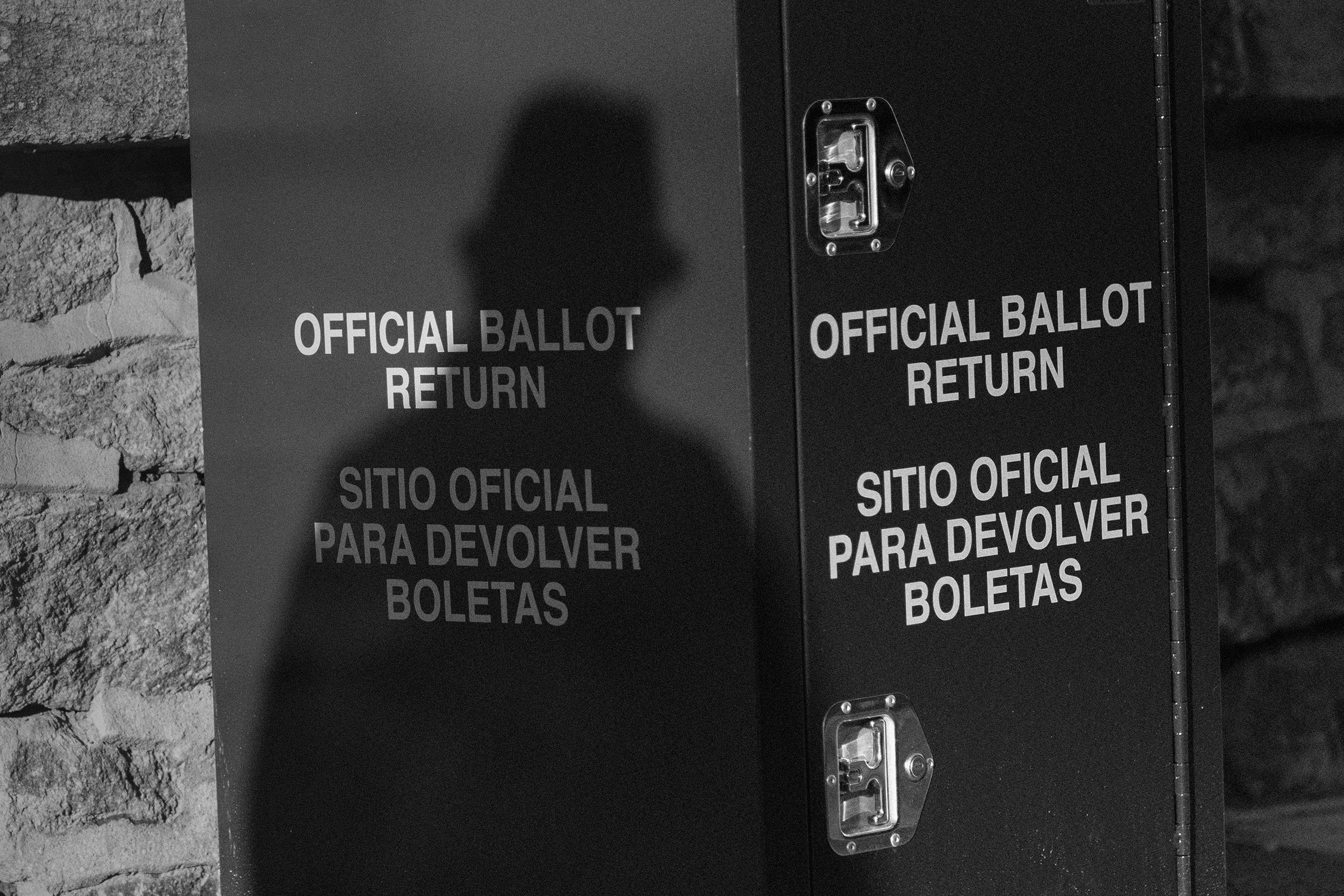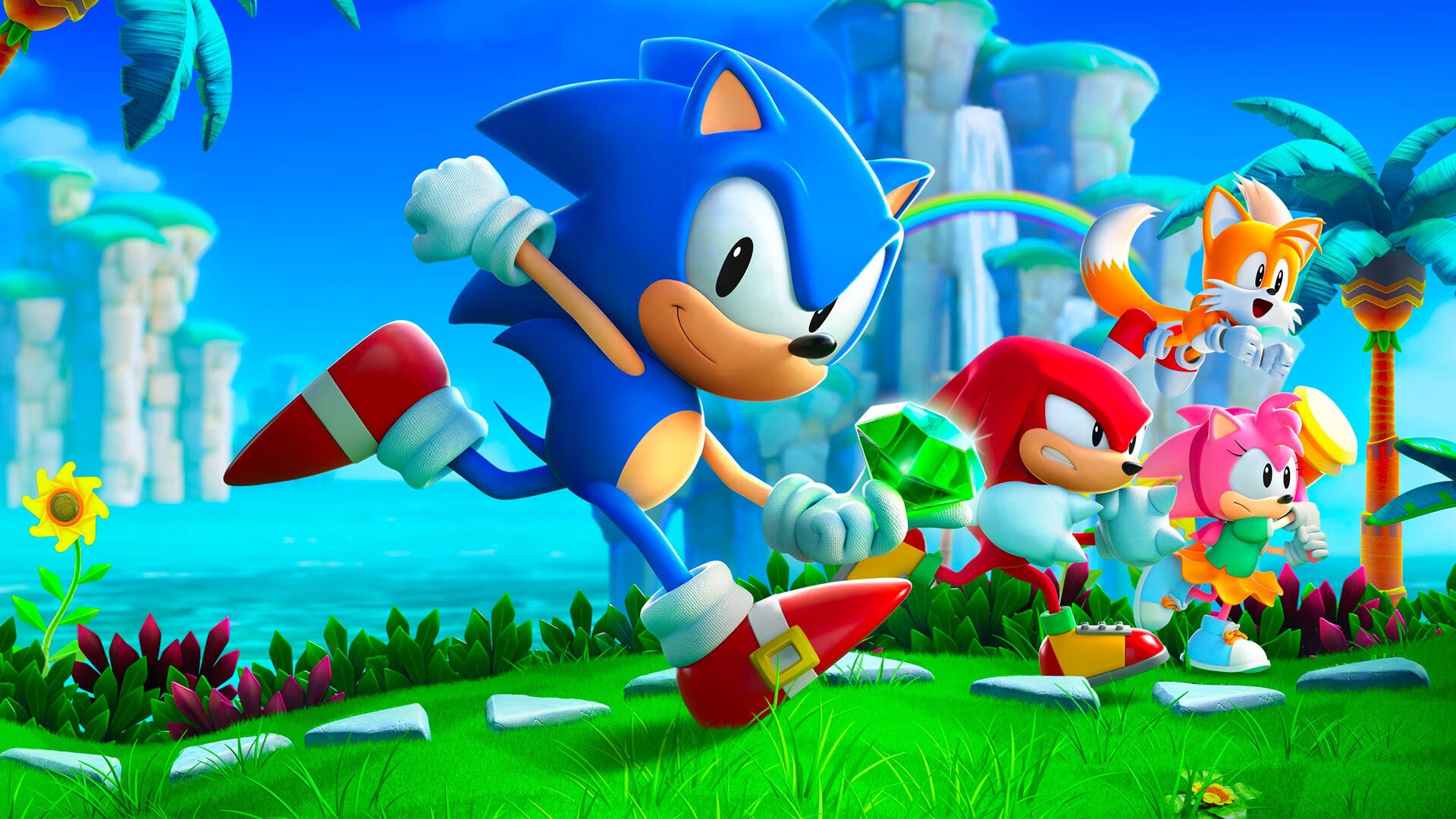Some days you’re hard at work, trying to make a deadline on a Friday night. (That’s right now as this is being written.) Others, you’re sitting in the VIP lounge with Tasha Yar herself, Denise Crosby, sipping a cocktail as you sail through the Caribbean Sea onboard a cruise ship.
Call it that Star Trek life.
And so it went on the Star Trek cruise recently – a.k.a. Star Trek: The Cruise VII – and not just for me, either. Crosby has become something of a fixture at the annual event, and she’s certainly one of the participating Trek castmates who gets out and mixes it up with the fans who are sailing. Crosby is almost like a brand ambassador for the Star Trek cruise experience – just out there loving it with her fellow castmates and fans alike. Just look at this amazing photo of her being chased by “Armus” – a cosplay version of the alien that infamously killed her Trek character back in Star Trek: The Next Generation’s first season.
But as we sat down to talk, it became clear that Crosby has no regrets about her abrupt departure from the show back when it was still in its infancy. We talked about that, Tasha’s eventual return for one of the all-time great Trek episodes, and much more.
Killing Tasha Yar (One Bad Script at a Time)
In 1987, Crosby was cast as one of the original cast members of Star Trek: The Next Generation as Enterprise security chief Tasha Yar. Tasha was a fierce fighter with a complicated past, and a striking presence on the bridge of the Starfleet flagship, but the actress found herself bumping up against a familiar Star Trek problem – being relegated to a “hailing frequencies” capacity while more prominent characters were given all the good storylines.
I suggest to her that, when she decided to move on, half of Hollywood probably thought she was crazy. She agrees.
“And half of me thought I was crazy,” laughs Crosby. “It was like I saw it, I had to do it. And yes, 99% of people that have an acting job with a six-year contract are not going to ask to go out. And I don't know that I would have 25 years later in my life, but I was young enough and perhaps naive enough to know that I was willing to gamble and take a chance. I was young enough that I knew I didn't have a mortgage. I didn't have children. I didn't have private education to pay for. I didn't have an ill relative that I was caring for. I didn't have the things that would necessitate a different way to think about doing a job for a paycheck. So I was free to purely live creatively at that moment.”
Looking back on it now, she also points out that TV in 1986 was a very different beast than it is today, and first-run syndicated dramatic television – which Next Gen was an early adopter of – was virtually unheard of.
“It wasn't the be-all, end-all for a young actor,” she says. “We were going to these amazing acting classes where we were reading all the great classics … I saw stuff in my acting class I still haven't seen to this day, the level of talent.”
But getting out of her contract would’ve been much more difficult if it weren’t for Trek guru Gene Roddenberry, who had created and was still in charge of Next Gen at that time.
“Nobody leaves a TV show,” Crosby continues. “You have a contract. I had a signed contract. The only way I was able to do it was because Gene Roddenberry had total control. He wouldn't have made another Star Trek if that were not the case, because he had been so abused by the process in the ‘60s. So he finally makes Next Gen, and he is given real autonomy. And he and I sat down like this together and he said, ‘Look, I wish you wouldn't leave. I don't want you to leave.’”
But Roddenberry ultimately gave his blessing, which meant Crosby was able to leave the show. It’s a funny thing though, because she says that the producers actually loved the character of Tasha Yar. But for some reason the scripts were not servicing the character; indeed, Season 1 of Next Generation is widely regarded as one of the lower points of the show’s run. And there was a lot of behind-the-scenes turmoil as well. Marina Sirtis, who played Counselor Troi, has said she was on the verge of being fired. And Gates McFadden, who played Dr. Crusher, was fired at the end of the season (she would return in Season 3). Still, this meant the first year ended with two of the three female leads leaving the show.
“And now they're like, ‘Oh my God, there's no … women,’” remembers Crosby. “So now we’ve got to keep Marina and Gates we'll recast. … It kind of wreaked havoc. That wasn't my intention. My intention was to get somebody in the room and tell me, ‘What is this going to be? What is this character?’ It's such an incredible opportunity. You have so much here, but I'm not going to just be the token hot blonde on the show. But they had a ’60s mentality. It was all these old white dudes in the room until, God love them, until Gene passed. And it shifted. There was a shift when [showrunner] Michael Piller came onto the show [in Season 3] and things changed.”
Denise Crosby’s Star Trek Return (and Tasha Yar’s Redemption)
Tasha was oil-slicked off the Enterprise, but Denise was beamed right into a successful career in both movies and TV, while also becoming something of an expert on the Trek fan community thanks in no small part to her successful documentary Trekkies, which she produced and hosted.
But of course, she did return as Tasha Yar to the bridge of the starship Enterprise two years after she had left, for the Season 3 episode “Yesterday’s Enterprise.” Through a bit of time travel and alternate timeline trickery, the episode gives us a version of the Star Trek world where Tasha is still alive. Not just that, but Starfleet is at war with the Klingons and things are, to quote Picard, “going very badly for the Federation, far worse than is generally known.” That even includes all the lights onboard being set to “dim”!
“I always make this joke at cons and stuff: I had to die to get a good script,” laughs Crosby.
The episode works on many levels, from its sci-fi conceits to its great cast of guest actors (Christopher McDonald and Tricia O'Neil as doomed crewmembers from a different starship Enterprise), to the off-kilter lighting and design touches which subtly place the story in a different universe. But perhaps most effective is the redemption of Tasha, who as the episode itself says, had died a senseless death the first go-round. Not this time!
“[Executive producer] Rick Berman called me at home,” she recalls. “It was a long time since I talked to him. Out of the blue. And he said, ‘We have this episode that brings Tasha back.’ … It was such a shock – never saw that coming. … And I said, ‘Okay, ew. That sounds weird.’ And he goes, ‘But it's really good, the script. Will you read it?’ I said, ‘Absolutely. Of course.’ Read it over the weekend. And I called him Monday. I said, ‘Oh my God, this is so good.’ This is what I wanted! It's ironic.”
Yes, Tasha did have to die in order for Denise to get a good script. Of course, by Season 3 Next Gen had finally hit its stride and was consistently knocking out strong episodes, but there’s a special resonance to “Yesterday’s Enterprise” because of the meta aspect of Crosby coming back to make right by Tasha. In fact, the actress just recently watched the episode for the first time in 35 years.
“It's so good,” she says of the hour. “It was such a delight. It was such a beautiful surprise that I couldn't have anticipated to be able to come back on the show and almost redeem her on many levels. … It's better than I thought it was. It's really good. Not only is the writing amazing, Whoopi [Goldberg] brings so much. Christopher McDonald is incredible. And Tricia O'Neil, who plays Captain Garrett. … I mean, those guys bring it. Everybody's better when you have good actors.”
Crosby would return a few more times for guest shots, first as Sela, Tasha’s half-Romulan daughter (long story), and then in the series finale, “All Good Things…”, where she got to play Tasha once more. But still, she says she had and has no regrets about leaving the show.
“There was no turning back,” says Crosby. “I knew I had to go. I never liked to cause problems or rifts. I sometimes feel I made the other guys uncomfortable, or I stirred something in them, which wasn't, again, the intention at all. Not all of them. … But sometimes I wonder if deep inside there was a period – I don't think anymore – but there might've been a period of resentment that, ‘Hey, we're going along here as a unit, and you feel the need to go rogue.’ That's just a natural thing, and that makes me uncomfortable. … But I could not have stayed on. I could not have stood on that thing, that horseshoe, and go ‘Aye-aye, Captain’ for five more years. No one has a crystal ball. Had I known what was to come and that maybe with Michael Piller we could have gotten in there and we could've done something with this character...
"The regret is that they didn't.”
Talk to Associate Director of Features Scott Collura on Twitter at @ScottCollura, or listen to his Star Trek podcast, Transporter Room 3. Or do both!










